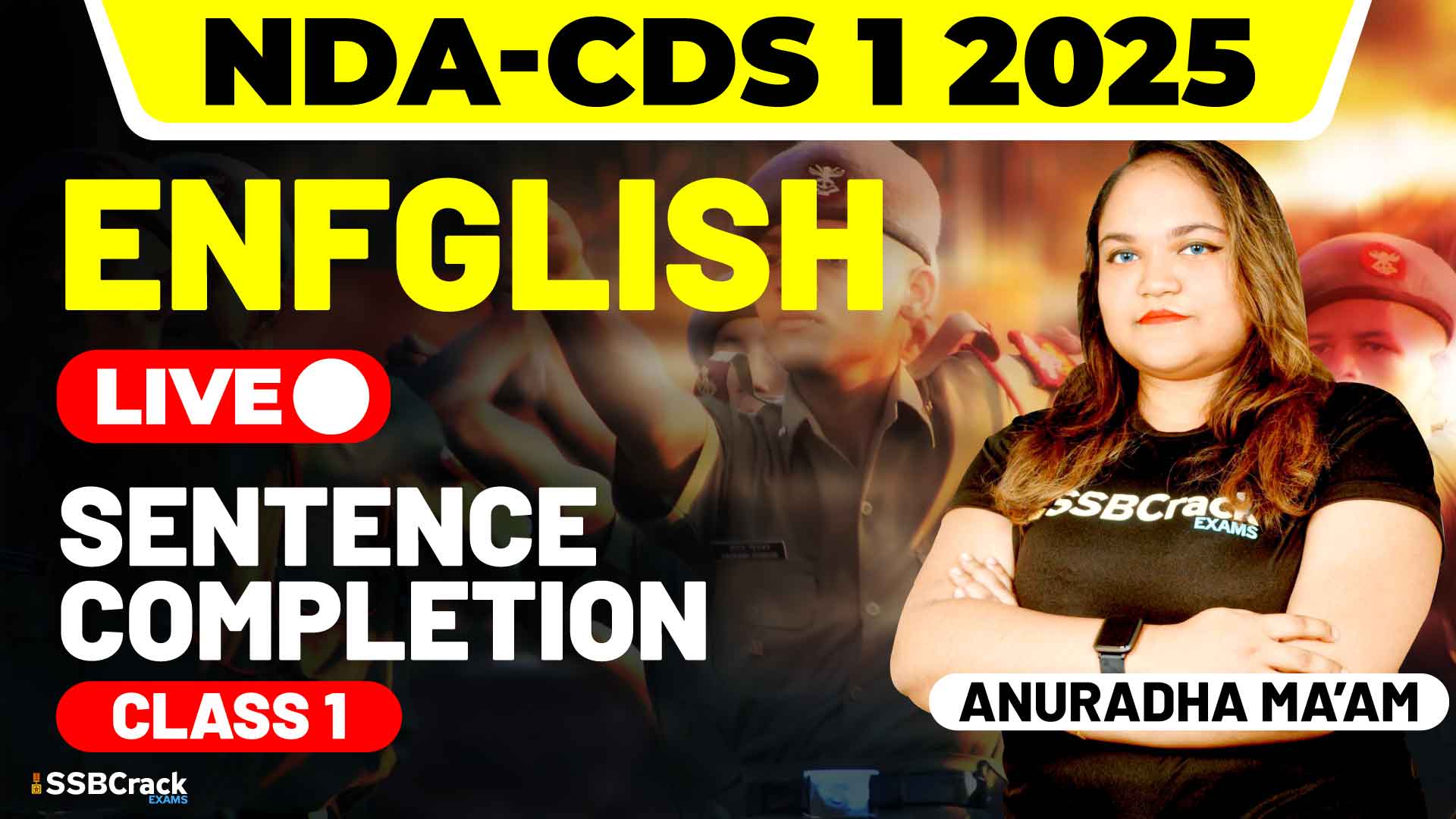Sentence Completion is a vital topic in the English section of competitive exams like NDA, CDS, and AFCAT. These questions test a candidate’s grammar and vocabulary, essential skills for understanding sentence structure, context, and meaning. Mastering Sentence Completion improves not only the test-taking speed but also the accuracy in selecting the right words or phrases that best complete a sentence, making it an invaluable skill for any aspirant.
Directions: Following items have one part of the sentence followed by four alternatives. Complete the sentences by choosing the correct alternative.
Q) The committee was unable to reach a decision because the members
(a)were in favor of it
(b)were not allowed to vote
(c)were in complete disagreement
(d)were not interested
Ans. (c)
Q) As soon as he reached the station, he realized that he
(a)forgot his tickets at home
(b)saw his friend waiting for him
(c)was excited to travel
(d)had missed the train
Ans. (d)
Q) The proposal was met with mixed reactions, with some members
(a)supporting it wholeheartedly
(b)leaving the meeting early
(c)ignoring the discussion
(d)creating new ideas
Ans. (a)
Q) The new teacher is both kind and strict, which means she
(a)makes everyone laugh
(b)does not tolerate indiscipline
(c)lets students do as they please
(d)cancels classes often
Ans. (b)
Q) If you had told me earlier, I
(a)would have come to help
(b)will be coming to help
(c)will not be able to help
(d)would not help
Ans. (a)
For more questions, check out NDA-CDS 1 2025 Exam English Live – Sentence Completion – Class 1
In NDA, CDS, and AFCAT exams, Sentence Completion questions are typically designed to assess comprehension, coherence, and vocabulary. Each question presents an incomplete sentence, and the candidate must choose the option that best completes it logically and grammatically. This requires a blend of language skills: grammar knowledge helps candidates understand how different parts of speech fit within a sentence, while a strong vocabulary allows them to select words that capture the intended tone or meaning. For instance, candidates might encounter sentences that require specific vocabulary to accurately convey context, such as choosing “optimistic” over “pessimistic” based on surrounding clues in the sentence.
In Sentence Completion Class 1, I organized an MCQ session where candidates practiced a variety of questions, strengthening their ability to swiftly identify the correct answer by analyzing sentence context and tone. By focusing on grammar and vocabulary through practical application, candidates developed a systematic approach to these questions, which will be highly beneficial on exam day. Practicing these MCQs allowed candidates to engage actively with sentence structure, improve their vocabulary, and understand the nuances of word choice based on grammatical cues.
As a result, preparing for Sentence Completion questions enhances candidates’ overall command of the language, which contributes significantly to their performance in competitive exams like NDA, CDS, and AFCAT. This topic not only aids in scoring but also equips candidates with skills they’ll rely on for comprehension and communication in both academic and professional settings.







